- Home
- Matt Forbeck
Mutant Chronicles Page 5
Mutant Chronicles Read online
Page 5
In his heart, Mitch knew better. Nathan was already dead, and he’d given his life for his friend. He couldn’t let that sacrifice be in vain. Right?
As if in answer, the mists gathered tighter around the transport, and the shadows came stumping over the crest of the hill. There had to be dozens of them, maybe hundreds.
There was no chance Nathan had survived.
The pilot shouted back from the airship’s cockpit, “Where’s everybody else?”
El Jesus leaned back and slammed his fist against the bulkhead that separated the cockpit from the transport’s main platform.
“There’s nobody else!” the big man said. “Let’s go, motherfucker!”
Mitch felt inertia try to pull him back to the earth as the transport lurched into the sky and left the landing zone. He watched the pool of light grow smaller below and then behind them. The lights began going out from the edges, one at a time at first, and then they snuffed out all at once.
8
Young Michael Stenmark had never seen his grandfather so agitated in all his years. The old man’s hands shook as he sat at the desk, his eyes closed as he listened to the mysterious series of long and short beeps that fought through the crackling static that filled his headphones. Grandfather Patric had the volume turned up so loud that Michael could hear the beeps the moment he walked through the door.
The trip up the mountain from his bare stone acolyte’s cell in the simple home just down the ridge had nearly frozen the boy solid. The blizzard raging outside had blocked the path to the radio tower, and Michael had wondered if the old rusted radio dish—which stood bigger than the radio shack itself—would still work if covered with so much snow. He thanked the Cardinal that another boy had been assigned the duty of keeping the thing clear.
Grandfather Patric scrawled the last letters of the message on the parchment as Michael approached the table. His lips moved as he read the words over one last time. His hand shook as if palsied as he shoved the paper into the boy’s hands.
Michael took the paper without a word and stuffed it into a pocket on the inside of his acolyte’s robes for safekeeping. He steeled himself with one last warm breath before charging back out into the snow.
As dawn broke over the mountains, Michael trudged back down through the snow, past his humble home, and down into the gorge below. The snow grew thicker the lower he went, until it was as high as his chest. He pushed on.
At first he tromped through the snow. Then he had to crawl through it. At one point it was so deep that he felt like he was swimming through it.
Many times Michael thought of giving up, of turning back, but he knew that his grandfather would not understand. Better for him to die here in the snow, trying with all his might to push forward, than to return to his grandfather’s shame.
The message was important. Despite not having read the scribbling on the paper, he knew that. He’d never seen his grandfather shake so.
If he turned back, if he went home, he would have to face his grandfather. The old man had never beaten him, but this could be the first time. Even worse, he knew that his grandfather would then try to get the message through himself, and Michael was sure that attempting such a journey would kill him.
Finally, Michael came to the drop-off, the part of the gorge that fell away hundreds of feet down to a trickle of a frozen river below. He worked his way down the treacherous path, knowing that one slip could send him sliding out over the edge and to his doom. He wondered if he would be scared the entire way down or if he would have enough time to regain his senses and even proclaim a quick prayer of penitence to the Cardinal before he hit the ground.
As Michael turned a corner in the path, the monastery loomed on the other side of the gorge before him. It seemed more like a fortress than a church, tucked away in the side of the mountain.
Michael made his way toward the massive stone bridge that stretched all the way across the ravine, and he looked up to see the rising sun caught in the stained-glass rosette hanging in the center of the place’s Gothic facade. The sight always stole his breath, and he often felt as if this was the closest he would ever feel to the Cardinal, right in this moment of awe.
The snows had been cleared from the bridge, and when Michael reached it, he broke into a sprint. After fighting through the deep snows for so long, it felt good to finally stretch his legs, and he widened his stride as far as he could.
When he reached the entrance to the place, he stopped and stared up at the carvings over the tall, ironbound doors. There were no guards there, no one to greet him, but he did not find that strange. The monks would be in morning prayers at the moment, and they had not had an unannounced visitor since long before Michael had been born.
Michael let himself in through the small door set in the center of the two huge doors. He felt like a thief sneaking into the dragon’s lair, although he’d been here nearly every day of his life. Inside, he could hear the soft echoes of the monks chanting their prayers in their solemn, steady tones.
Michael ran toward the chanting, and it grew louder with every step. He could hear the words now, not just the music, and he began to chant along with them under his breath.
9
When Brother Samuel had awakened that morning, he’d known something horrible had happened. He could feel it in the depths of his soul, and it disturbed him to his core.
Despite his growing sense of dread, Samuel had gone about his regular morning routine without a word. Up before the first hint of dawn had shown above the edges of the surrounding mountains, he had bathed in the icy waters that ran in a stream from the mountaintop all the way down to the monastery. Then he had dressed in his coarse red robes and hung the symbol of the Brotherhood around his neck.
Although it was heavy, he no longer felt its weight. When he removed it, he noticed that he felt lighter in its absence, so much so that he feared he might float away. The metal icon grounded him spiritually and physically, and without it he was rootless.
Last of all, he put his hands together, folding his thumbs and index fingers over each other, and prayed. He had done this every day since he’d pledged his soul to the Cardinal’s eternal cause: protecting humanity from the evils that could destroy them all.
The bickering between the megacorps, inevitable as it was, only did the Dark Symmetry’s evil work, driving wedge after wedge between the peoples of man so that they could not form a united front against the darkness. Nowhere was this more apparent than in the Cartel, the intercorporate organization founded to further the few aims on which all the megacorporations could agree.
The corporations sometimes seemed to forget that they had the Brotherhood for that. The Cardinal had long ago taken charge of the safety of their souls, and what could be more vital than that?
After a meager breakfast, Samuel made his way to the monastery’s chapel. There he met the other monks at the appointed time, and together they prayed. At first he led them in a series of chants, and then he opened his copy of the Book of Law.
The monks spent almost every hour of daylight scribing new copies of the Book of Law by hand. That was the charge of the Directorate known as the Mission. It would have been simpler to use technology to copy the books, but that would have allowed the foul influence of the Dark Symmetry to alter the copied text in ways both subtle and horrible.
Some said humanity had taken a turn for the worse when it had been forced to give up the ways of technology to survive. The Dark Symmetry had made such amazing devices not only unreliable but deadly. The First Corporate Wars had broken out over such issues, and it had taken the Cardinal’s leadership to bring humanity back from the brink of destruction to which it had driven itself.
No book made in the monastery was ever more than two copies away from the Book of Law kept in the monastery’s vault. The first thing every monk did upon becoming a scribe was to make his own copy of the book from that sacred text. He then used that edition as the basis of the copies he made for other people.
; As the chanting fell silent, Brother Samuel opened his copy of the Book of Law, set it on the lectern in front of him, and began to read aloud to the robed monks assembled before him:
Ár nathair atá ar neamh, naofar d’ainm
Go dtaga do ríocht
Go ndéantar do thoil ar an talamh mar a dhéantar ar neamh.
Ár n-arán laethúil tabhair dúinn inniu…
As he led the others through the catechism, the door at the back of the chapel creaked open on its rusty hinges. Samuel made a mental note to have Brother Bergtig oil them at the next opportunity. Then the boy named Michael came into view, and Samuel’s heart sank. There would be time for taking care of creaky doors later.
Samuel frowned not in displeasure at the boy but at the message he knew he must bear. Although the monk did not know the contents of the boy’s note, such vessels never carried good news. The Brotherhood was happy to let good tidings crawl, but it fired bad news from a cannon.
The boy drew a piece of parchment from inside his snow-crusted robes as he strode into the chamber. The child’s hands were almost blue from the cold, and his fingers felt like icicles.
Samuel took the note and opened it. The news was worse than he could have imagined. His fingers tightened on the boy’s shoulder, and his face drained of color.
Samuel placed the note into the Book of Law and closed it. He picked it up carefully from the lectern, then nodded for the monks to begin their workday. “In nomine Cardinalis,” he said to them softly. The chamber’s perfect acoustics carried his words to every set of ears.
As Samuel turned to leave the chamber, he heard the boy padding along behind him, ready for a new assignment, a response, anything. Samuel turned to the boy and shook his head. He gestured for Brother Stefan and Brother Conner to take care of the boy. If he had a hot bath soon, he might keep all his fingers.
Satisfied that the boy was in good hands, Samuel ducked into a nearby stairwell and began to climb. The stairs wound upward forever, spiraling higher and higher into the mountain’s living rock. Windows shaped like natural formations let in sunlight every so many yards, allowing a weak light to stream into the shadows and show Samuel the way.
When he reached the top, Samuel found himself standing before an iron door sealed by many large locks. A monk stood by the door, waiting for him. She carried a naked blade in her hands.
Severian’s Book of Law would be kept in her cell, he knew, there for her whenever she needed it. With her assignment, straight from the Cardinal, she would need her sword far more often than the book’s words.
Despite her stolid composure, Samuel suspected that Severian was surprised to see him. Few people ever came up this way, and only if they had the most vital business. Still, no emotion showed in her wide, dark eyes.
Samuel reached out, and the monk bowed her head as he took a key from a chain around her neck. He inserted it into the lock and turned it in a specific way. Then he nodded to Severian.
The door swung wide. It creaked even more loudly than the chapel door had.
Samuel entered the tiny chamber beyond the iron door first, with Severian close behind. Sunlight streamed in from the skylight, illuminating the room. Lichen encrusted the rough-hewn stone walls. Ancient swords bearing Celtic patterns stood in the center of the room, covered with dust and cobwebs as if they had not been moved for the last thousand years. They hung in a circular rank around a lectern, and on the lectern sat a single leather-bound book, simple and unassuming. Samuel walked to it and picked it up gingerly, hefting it in his hands as if it were as precious as a newborn child.
This, Samuel knew—as few others did—was the original Book of Law, the first set of the Chronicles ever scribed. That alone would have been enough to make it a sacred tome of the highest order, but there was more to it than that.
This particular book contained certain chronicles that had never been copied into any other book. The knowledge held in it was too dangerous to be disseminated widely, even to other members of the Brotherhood. But the time had come for it to be revealed and put to use.
10
Samuel did not feel comfortable in the boardroom. He came from a world devoted to prayer and wisdom, not stock prices and balance sheets that could value a life in something as crass as crowns. If he had had a choice, he never would have set foot in such a place—the Earth headquarters of the intercorporate council known as the Cartel—but the Cardinal had personally requested he do so, and so he did without question.
The boardroom stood at the top of the Cartel’s towering skyscraper. Weak sunlight filtered down through the gray clouds outside and across the wide stone balcony that fronted the panoramic windows, and fought through the smoke-filled air inside the room to provide what little illumination the ambassadors there would permit. They preferred to have shadows in which to skulk, away from the eyes of their underlings.
Not that any of the masses they supposedly represented would ever be permitted inside the first floor of this tower, much less allowed to enter the opulent sanctum—at least none of those who had not somehow curried the favor of these most powerful people. Some of them clustered here around their masters: needless translators jabbering away in their native tongues, secretaries recording verbatim every word said in the chamber, concubines brought to put their employers’ virility on display.
It made Samuel sick. He longed for his simple, uncluttered cell and the monastery’s clean mountain air. All he had with him, though, was the silent Severian, who had not spoken a word since coming to the monastery, and this ancient Book of Law, but that would be enough.
Standing at a lectern placed at the foot of the obscenely large table around which the four groups were gathered, with Severian standing behind him, he read from the sacred Chronicles.
“Before the first dawn, there was a battle in Heaven. The Enemy was cast out and fell to Earth, an evil star.”
He looked to the chairman of this council, a regal man named Constantine. He, at least, listened. Samuel could not say as much for the ambassadors sitting beneath the banners of the Capitol star, the Mishima sun, the Bauhaus cog, and the Imperial lion. He could read the disbelief in their faces, in the way they had held themselves when he had entered the room, in the falsity of their smiles as they had greeted him. They had no place for the Cardinal’s wisdom in their hearts, but that did not mean that Samuel could give up, not with the fate of the planet on the line.
“Broken in body but not in Pride, consumed by Envy and Hate, it conspired to remake Man in its own Image. And thus the Enemy created a Machine. A Machine that stripped the souls from the dead and dying and replaced them with its own Dark Essence.”
Samuel saw the Bauhaus representative roll his eyes at this, and one of the man’s retinue of sycophants had to stifle a snicker. The monk knew how this sort of thing sounded to worldly men. He’d been one once himself, a lifetime ago. Would he have believed what was written here in this ancient book, in the steady hand that had used ink and quill to speak through the centuries to the future of humanity for the time when its prescience would be needed most?
Probably not, he had to admit. But Samuel had seen many things since he had been a part of the corporate world. He’d long ago renounced the so-called conventional intelligence and given over his life into the Cardinal’s hands.
Men did not believe in what they could not see, and even then they refused to fully engage with the mysteries of the universe. They denied the very idea of the Dark Symmetry as superstition and lies, and they laughed at the notion that people of goodwill could use the light to fight against the darkness.
In these black days, though, their laughter rang hollow.
“When the great star fell to Earth, Neachdainn, Founder of our Order, united the ancient tribes of Man. Together they defeated the Enemy and sealed his Machine beneath the Earth.”
Neachdainn had been one of the first Druids, the people who had lived in this land over two thousand years ago. Cardinal Nathaniel Durand I had built
the Brotherhood on the rock of their beliefs and on the actions they had performed to save all of humanity so long ago.
Samuel could tell by the blank looks from the ambassadors that none of them had heard of the man. He knew that they each attended services in the Brotherhood cathedrals every week. They paid their respects to the Cardinal, but only with their lips and their gold. They kept their hearts to themselves, sheltered in the darkness of their souls.
The monk closed the book. What he had to say next came not from its words but from the Cardinal himself. Samuel was but a mouthpiece for this pronouncement, although he agreed with every word as if it had originated from his own tongue.
He knew that he had to speak truly here to gain their attention, much less their support. He was a mere monk, used to speaking only to other brothers, but he had to connect with these people somehow.
How long had it been since he’d left the monastery? He had lost track of the years in that timeless place. From what he had seen of civilization since he’d returned to it for this mission, it hadn’t changed much. Perhaps only for the worse.
Samuel spoke clearly and slowly. He looked into the eyes of each of the ambassadors as he formed the words. They met him with strength—even defiance. Only Constantine seemed to hear what he had to say, but he kept speaking.
“But now war has broken the Great Seal, and its wheels turn once again. Every soldier that falls in battle, every woman and child taken in the night becomes an Enemy of Man, another demon bent upon our extinction.”
He knew they had seen these things. He could not have avoided the reports himself if he had tried. News of the mutants rampaging throughout the world had taken up every last second of radio and television, every inch of newsprint. They knew what was happening, of course, but they had no idea why, no inkling of the truth.
“Ten beget a hundred, a hundred beget a thousand, a thousand beget a million. But even now there is hope. The Chronicles prophesy that one will rise to follow the path of Neachdainn into hell itself and deliver mankind from oblivion.”

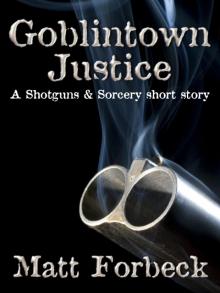 Goblintown Justice
Goblintown Justice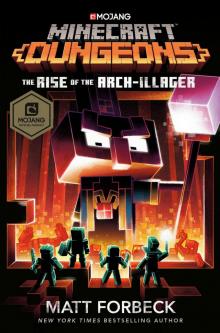 Minecraft Dungeons
Minecraft Dungeons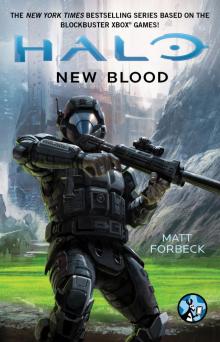 New Blood
New Blood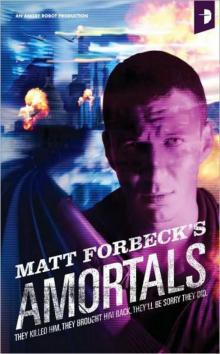 Amortals
Amortals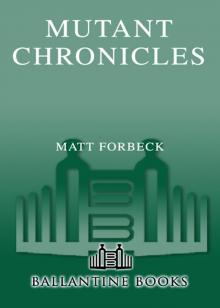 Mutant Chronicles
Mutant Chronicles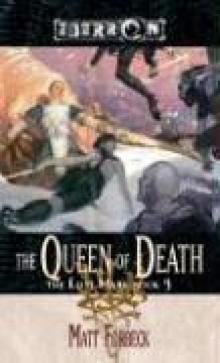 Lost mark 3 The Queen of Death:
Lost mark 3 The Queen of Death: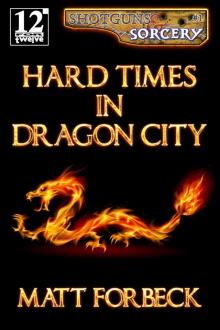 Hard Times in Dragon City
Hard Times in Dragon City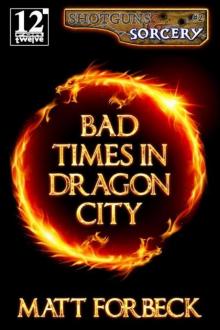 Bad Times in Dragon City
Bad Times in Dragon City Legacy of Onyx
Legacy of Onyx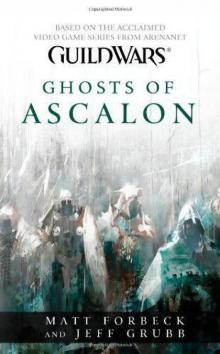 Ghosts of Ascalon (guild wars)
Ghosts of Ascalon (guild wars)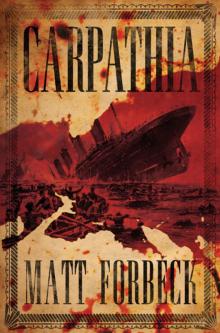 Carpathia
Carpathia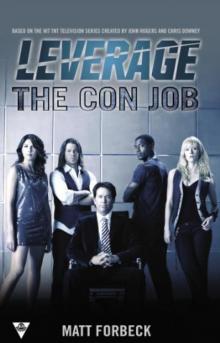 The Con Job
The Con Job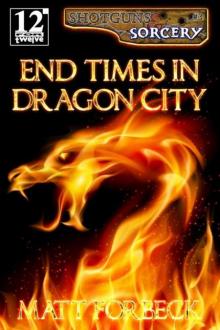 End Times in Dragon City
End Times in Dragon City